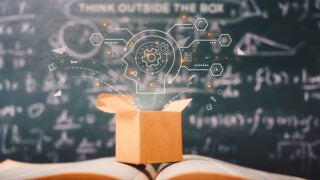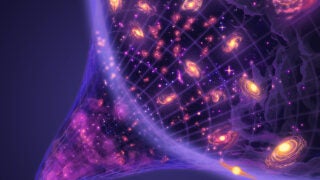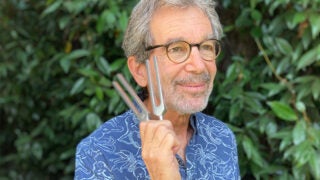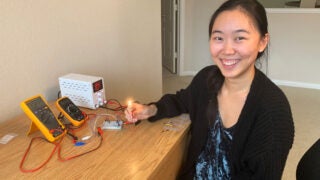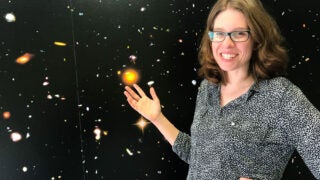The honor recognizes innovation that has a real impact on the welfare of society.
Physics
News Listing
The emeritus faculty member, who worked at labs in France, the Soviet Union and Germany before joining USC in 1970, co-discovered the “Maki-Thompson effect” on electron transport in superconductors.
From the origins of the Big Bang to the composition of dark energy, dark matter and black holes, cosmologists Vera Gluscevic and Elena Pierpaoli are searching for answers.
Longtime educator Jack Feinberg came up with fun kits to ship to students so they could still do physics experiments at home. It’s in his nature.
USC mailed more than 1,000 lab kits to its college students around the world so they could still do hands-on experiments while studying remotely during the COVID-19 pandemic.
COVID-19 can’t stop a popular annual science outing run by USC physics and astronomy experts for curious and enthusiastic local teens.
Two new USC Dornsife general education courses offer students a richer, broader way to learn and to acquire diverse academic skills.
Vera Gluscevic studies the deep unknowns of space — including dark matter and dark energy — while pushing to make science more open and diverse.
Scientists at USC Dornsife determine that electrons traveling through proteins between bacteria and solid surfaces outside the cell tend to adopt a particular quantum spin. The finding that could impact future electronic technologies, including “spintronics.”
The pioneering scientist who won the Nobel Prize in 1969 is known for his creative insights into the particles that comprise the universe.

